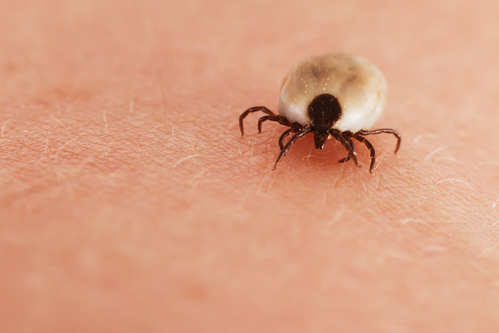Beware of ticks lurking in gardens and on terraces, researchers warn


The risk of being bitten by ticks lurking in lawns, grass clippings and outside terraces with grassy borders is increasing, scientists have warned.
Ticks, which can carry Lyme’s disease, are known to live in gardens as well as woods, but where they strike had not been ascertained until now. To answer that question Wageningen University & Research organised a tick count in the gardens of 30 households across the country.
‘One of the things that stood out is that ticks were found in grass that had been recently mown,’ researcher Arnold van Vliet told broadcaster NOS. ‘We assumed they would be sitting in borders and under bushes.’
Ticks were found in 70% of gardens, Van Vliet said. Some 350 were caught in total, with a count of 16 per 100 square meters.
Ticks strike 1.5 million times a year, a rise of 30% over the last decade. One in five carry the bacterium which causes Lyme’s disease. Some 27,000 people a year bitten by infected ticks experience joint, nerve or heart problems as a result.
One in three people are bitten in their own garden, tick bite monitor Tekenbeet.nl found.
While it is true that ticks are between four and 10 times as numerous in woods, gardens are used more often which increases the chances of a bite. Urban areas are not exempt, Van Vliet warned.
The best way to intercept the potentially harmful creepy crawly is to do a tick check following a walk in the woods or sitting in the garden ‘when brushing your teeth before you go to bed’, Van Vliet said. The timely removal of an infected tick reduces the chances of contracting Lyme’s disease by half.
Most adults are bitten on the legs, but in children ticks tend to go for the neck and scalp, so parents need to check those areas carefully, the RIVM health institute warned last year.
Thank you for donating to DutchNews.nl.
We could not provide the Dutch News service, and keep it free of charge, without the generous support of our readers. Your donations allow us to report on issues you tell us matter, and provide you with a summary of the most important Dutch news each day.
Make a donation